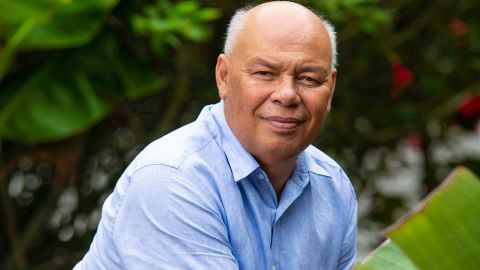Covid-19 makes its way through the Pacific Islands
30 March 2022
Opinion: As Covid finally starts to spread in the Pacific Islands, Collin Tukuitonga looks at how nations can continue to manage the virus's ongoing threats to health.

The small islands in the Pacific region have been successful in keeping Covid-19 out since the pandemic outbreak began in early 2020. They have done a tremendous job in ‘buying time’ until vaccination and treatment options became available.
Unfortunately, many of the island nations are now reporting Covid-19 cases at their borders or in the community. The Cook Islands, Kiribati, Niue, Samoa and Tonga recently reported new cases in addition to Fiji and Papua New Guinea, which have had the virus since 2020.
Some island nations remain Covid-free including Nauru, Tokelau and Tuvalu, although it would be difficult to avoid cases as border restrictions are lifted in most countries in the region and travel becomes more frequent. Ensuring high vaccination rates remains a key priority for these nations.
The number of Covid-19 cases in many of the island nations are estimates only, given low testing rates and challenges with data. Nonetheless, support from international development organisation Pacific Community, the Pacific Islands Forum, and the Australian and New Zealand governments provides the assurance needed that the island nations are managing the pandemic risks appropriately.
In the Cook Islands, more than 1200 Covid cases have been reported in the community with few hospitalisations and no deaths. The Cook Islands has a well-established Covid-19 response and their vaccination coverage is excellent. There is ongoing transmission in the community and local officials are predicting (based on modelling) a peak in early April.
Niue has reported four cases identified at the border in residents returning from New Zealand. Niue has a demanding testing and isolation regime for the limited number of residents and visitors. All passengers are required to be fully vaccinated. There is no evidence of community transmission on the island.
Samoa extended the lockdown for a further two weeks on March 23 in response to the growing number of cases in that nation. Samoa reported 216 new cases two days later, with more than 1000 cases reported in the nation overall.
Tonga has reported more than 5500 cases and two deaths in the kingdom overall as of March 27. Community transmission is continuing with approximately 335 new cases reported in the 24 hours to March 27. Approximately, 70 percent of the Tongan population is fully vaccinated.
The outbreak appears to be declining in Fiji with a seven-day average of 22 new cases. Fiji has been one of the island nations most severely affected by Covid-19 with more than 64,376 total cases reported and 834 deaths.
Kiribati is also reporting a decline in the number of new cases with a seven-day moving average at five cases. Kiribati has reported more than 3000 cases and 13 deaths since the virus was introduced in January 2022 by 36 passengers in a repatriation flight from Fiji.
Vanuatu is reporting continued transmission in the community with escalating numbers in Shefa and Sanma provinces. The Solomon Islands has reported more than 10,426 cases in total with 129 deaths. It is reporting approximately 200 new cases per day but testing is incomplete and the true numbers could be higher.
Vaccination rates vary considerably across the island nations with most reporting moderate uptake rates around 70 percent of the eligible populations. Lifting vaccination rates, including boosters and vaccination for children between five to 12 years is a priority to prevent the spread of Omicron.
Some of the islands need more support to access the required vaccines, in addition to the support already provided by the Australian and New Zealand governments. Continued use of recommended masks and other public health measures are also important.
These measures, following on from the firm actions taken by these island nations in the early days of the pandemic, could ensure most will remain well-placed to manage the ongoing threats to population health from Covid-19.
Dr Collin Tukuitonga is Associate Dean Pacific and Associate Professor of Public Health in the Faculty of Medical and Health Sciences and a member of the Health Quality & Safety Commission Board.
This article reflects the opinion of the author and not necessarily the views of the University of Auckland.
Used with permission from Newsroom Covid-19 makes its way through the Pacific Islands 30 March 2022
Media queries
Alison Sims | Media adviser
M: 021 249 0089
E: alison.sims@auckland.ac.nz